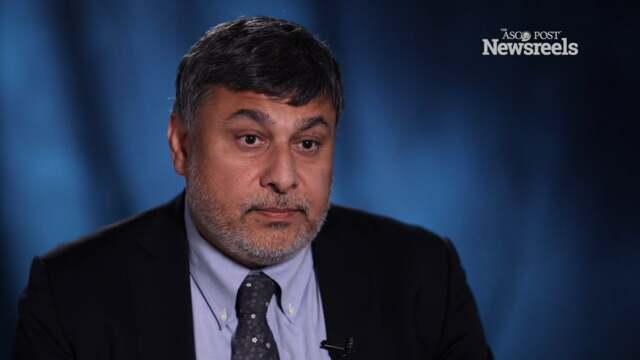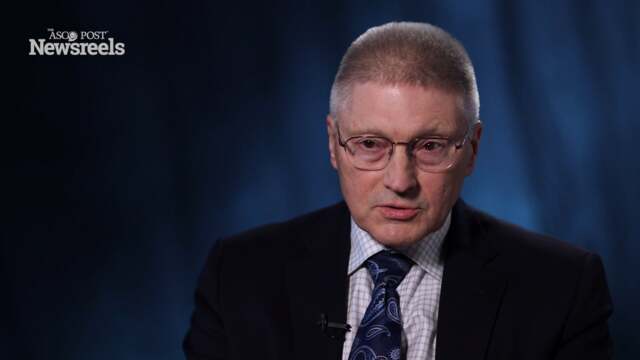Ramaswamy Govindan, MD: Roundup of Lung Cancer Findings
2015 IASLC World Conference on Lung Cancer
Ramaswamy Govindan, MD, of Washington University, summarizes three important papers: ROVA-T in relapsed and refractory small cell lung cancer, genomic characterization of large-cell neuroendocrine tumors, and the ECOG study on bevacizumab following chemotherapy for resected non–small cell lung cancer.
Naiyer A. Rizvi, MD
Naiyer A. Rizvi, MD, of Columbia University, offers an update on immune checkpoint inhibitors in non–small cell lung cancer: what’s new and what’s next.
Philip Bonomi, MD
Philip Bonomi, MD, of Rush Medical College, summarizes a debate on two important issues: choosing between surgery and stereotactic body radiation therapy (SBRT) in operable NSCLC, and whether or not to use SBRT for nonbiopsied lung nodules (Abstract PC 01).
Karen Kelly, MD
Karen Kelly, MD, of the University of California, Davis, summarizes three important papers on NSCLC: expression as a predictive biomarker; pembrolizumab, immune-mediated adverse events, and corticosteroid use; and an evaluation of disease-related symptoms in patients treated with nivolumab or docetaxel (Abstracts ORAL 31.01, 31.02, and 31.03).
Pasi A. Jänne, MD, PhD
Pasi A. Jänne, MD, PhD, of Dana-Farber Cancer Institute, summarizes a workshop he conducted on the state of the art in next-generation sequencing of lung cancer (Abstract WS 01.07).
Fred R. Hirsch, MD, PhD and Paul A. Bunn, Jr., MD
Fred R. Hirsch, MD, PhD, of the University of Colorado Health Science Center, and Paul A. Bunn, Jr, MD, of the University of Colorado Cancer Center, give their views on the goals and important presentations of the 2015 World Conference on Lung Cancer.





